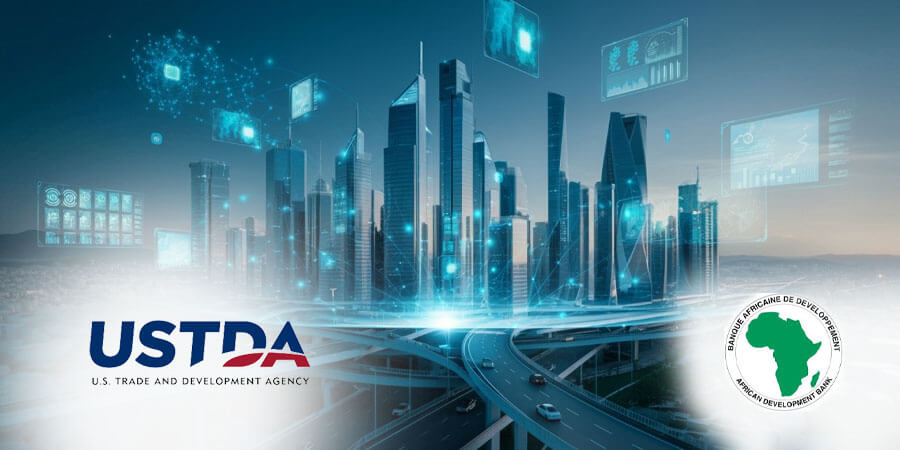The African Development Bank (AfDB) and the U.S. Trade and Development Agency (USTDA) have renewed their Memorandum of Understanding (MOU), extending their strategic partnership for five years. This agreement reflects a shared commitment to advancing quality infrastructure development across Africa by strengthening national procurement systems and aligning them with international best practices, leveling the playing field for international competition. The MOU also formalizes ongoing coordination to develop a pipeline of bankable projects that are eligible for USTDA’s project preparation grants.
“The extension of our strategic partnership reaffirms our shared commitment to creating a more sustainable and prosperous future for Africa,” said USTDA Director Enoh T. Ebong. “By combining our resources and expertise, we are delivering impactful solutions that promote high-quality, sustainable infrastructure on the continent while increasing opportunity for U.S. companies by promoting fair, transparent, and effective procurement systems.”
The renewed MOU emphasizes improving public procurement capabilities to create transparent and efficient systems that support economic growth and sustainable development. A key new element of the partnership focuses on project preparation, highlighting USTDA and AfDB’s plans to enhance project design and readiness. By leveraging the competitive advantages of U.S. companies in sectors such as energy, transportation, digital, and healthcare infrastructure, the partnership aims to integrate innovative solutions into development efforts. This strategic approach is intended to attract investment and ensure the successful implementation of infrastructure projects across the continent. The original MOU was signed in 2018 under USTDA’s Global Procurement Initiative (GPI).
African Development Bank Senior Vice President Marie Laure Akin-Olugbade praised the continued collaboration. “This will allows us to continue to strengthen national procurement institutions, build capacity, and ensure effective implementation of procurement programs within our regional member countries,” she said. “This fortifies our institutions' joint ambitions to assist emerging economies in developing policies and procedures promoting best procurement practices, ultimately promoting sustainable economic growth across the continent.”
Launched in 2013, the GPI assists public officials in emerging economies to better understand the total cost of ownership of goods and services for infrastructure projects. The initiative now includes 16 partner countries.








